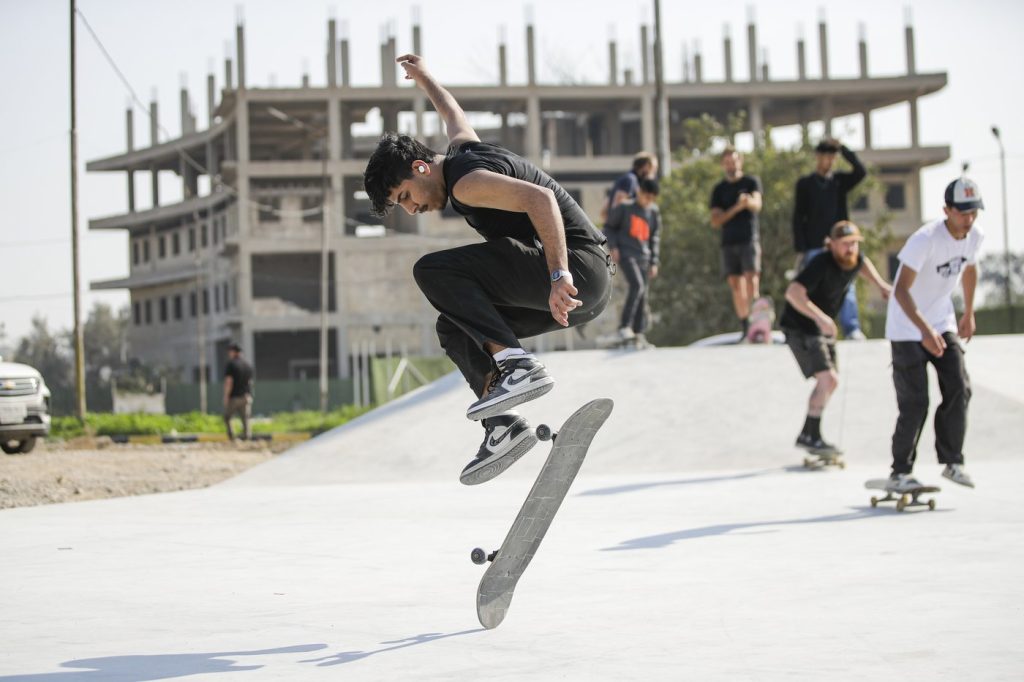BAGHDAD (AP) — The streets of Baghdad are no longer plagued by daily concerns of car bombs and militant attacks, which were rampant during the chaotic years following the fall of Saddam Hussein and at the peak of the conflict to repel the Islamic State group. Despite the relative calm, many young Iraqis find that their opportunities remain limited.
With a population nearing 9 million, Baghdad has witnessed some initiatives aimed at restoring public parks and cultural spaces. However, urban planning has largely failed to include youth-focused projects. This may be beginning to change, as the capital celebrated the inauguration of its first skate park this weekend. The ceremony was attended by foreign diplomats, sports officials, and young athletes, signifying a hope for the development of more recreational areas that promote creative expression.
Mohammed Al-Qadi, a 19-year-old skateboarder, expressed his excitement, stating, “I have been waiting for this moment for five years.” Previously, he and other skateboarders practiced in public spaces, like Al-Zawraa Park and Abu Nawas Street, often facing eviction by authorities, risks of colliding with vehicles, and injury due to uneven surfaces. With the new skate park, Al-Qadi feels a sense of safety: “Now, we have a safe space, and I hope this is just the beginning.”
The skate park, located within the Ministry of Youth and Sports complex near Al-Shaab International Stadium, was completed in just three weeks with the support of the German and French embassies. This project highlights a growing international interest in enhancing Iraq's sports infrastructure, particularly for activities that extend beyond the country’s traditional focus on soccer.
Not only is the skate park serving the male skaters, but it has also inspired female athletes. Rusul Azim, a 23-year-old skater, attended the opening in both sportswear and a hijab, stating, “I hope to compete internationally now that we finally have a place to train.” Even though skating still trails behind soccer and other mainstream sports in popularity, Azim is optimistic that the new facility will motivate more young people, especially women, to embrace the sport.
Zainab Nabil, 27, also participated in the park's opening, despite her family’s disapproval of her skating. She asserted, “I am here to show that women belong in this sport too,” adding her hope for separate days for women and men to create a more comfortable environment for girls interested in skating.
The establishment of the skate park represents a small but meaningful stride toward providing Iraq's youth with a dedicated space to engage in activities they are passionate about. Al-Qadi articulated this sentiment well, saying, “We need more places like this — safe spaces where young people can be active, express themselves, and dream of something bigger.”
As the skate park opens its doors to the community, there’s a collective hope that it will be the first of many such projects in Baghdad, offering youth the opportunity for recreation and creative outlets that have been long overdue.










